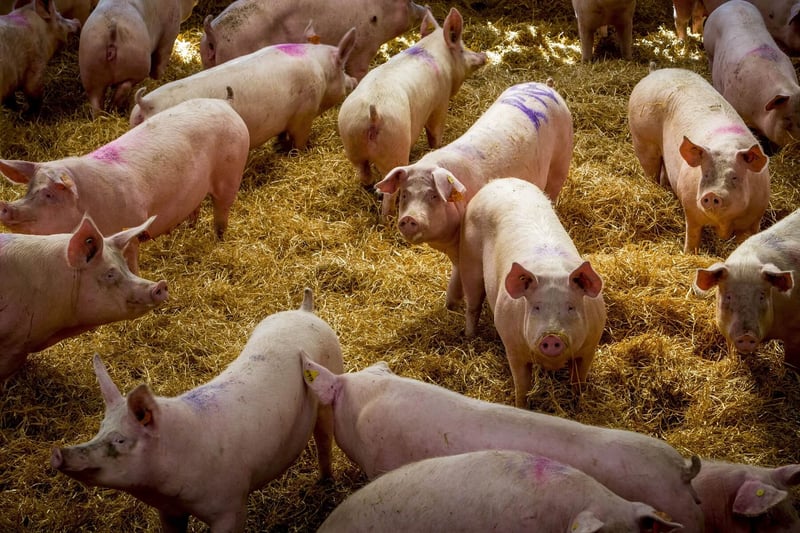
Find out how world leading food companies rank on animal welfare policies
News
Marks & Spencer, Waitrose and Coop Group (Switzerland) received top marks in the brand new, third edition of the Business Benchmark for Animal Welfare – with Burger King, Mars and Müller among 21 companies languishing at the bottom
The Business Benchmark for Animal Welfare (BBFAW) is now in its third year. In collaboration with Compassion in World Farming, the Benchmark provides an annual review of the world’s leading food companies – assessing how they manage and report their farm animal welfare practices.
This year, 80 companies were assessed, and ranked from Tier 1 (indicating companies are taking a leadership position) to Tier 6 (where animal welfare does not seem to appear on their business agenda).
Encouragingly, 45% of the 65 companies first assessed in 2012 have moved up at least one tier.
And there are a growing number of leadership companies in the Benchmark from across different industry sectors and countries. These companies have made strong commitments to farm animal welfare, with good management systems and processes, and a clear focus on measuring their performance.
Recent food scares like the horsemeat scandal have forced companies to become more transparent about the management of their supply chains. 28 of the companies assessed (35% compared to 15% in 2010) now include farm animal welfare in suppler conditions.
But farm animal welfare is still an immature business issue. Half of the 80 countries assessed this year are in the bottom two tiers (Tiers 5 and 6) – indicating that farm animal welfare doesn’t receive anything like the same management attention as other corporate responsibility issues. And some of the world’s major companies have shown little sign of progress.
The restaurants and bars sector in particular, continues to lag behind. Interestingly, there is a clear divergence between public-facing and business-to-business companies. Subway (sandwich store) and Wendy’s (fast food chain) are in Tier 3, for example, whereas Gategroup Holding, Olav Rhon Gruppen, SSP Group Limited amd Umoe Gruppen all appear in Tier 6 – and Compass Group and Elior are in Tier 5.
Some of the strongest performing companies are based in the US. McDonald’s in particular, shows leadership in its approach to managing and reporting on farm animal welfare.
But many US-based food service companies, including Domino’s Pizza, Starbucks and Burger King, appear in Tiers 5 and 6. Disappointingly this shows that they have yet to establish robust systems and processes for managing and reporting on farm animal welfare.
Food producers in emerging markets are similar to, if not better than, their peers in the developed markets. In fact, the world’s largest meat producers – BRF, JBS and Marfrig in South America, and WHY Group (which owns Smithfield Foods) in China, are all in Tiers 3 and 4.
Some discount retailers have started to address higher farm animal welfare in their supply chains. For example, Lidl sells a plant-based alternative to foie gras and uses a cage-free housing system for rabbits in Belgium.
But key welfare issues such as close confinement and long distance transport are still under-reported. Most companies don’t have an official position on their commitments in relation to these issues. Fish welfare is also universally under-reported.
Mike Baker, our Chief Executive, said: “Consumers increasingly care about where their food comes from and are demanding a better life for farm animals.
"While it is encouraging to see a growing number of companies in this year’s Benchmark and stated commitments to animal welfare, there is clearly still much room for improvement.
"Companies have the power in their hands to transform the lives of billions of farm animals around the world.”
Image: Pigs in group housing in a higher welfare indoor farm in the UK (Thomas Alexander)
Companies have the power in their hands to transform the lives of billions of farm animals around the world.